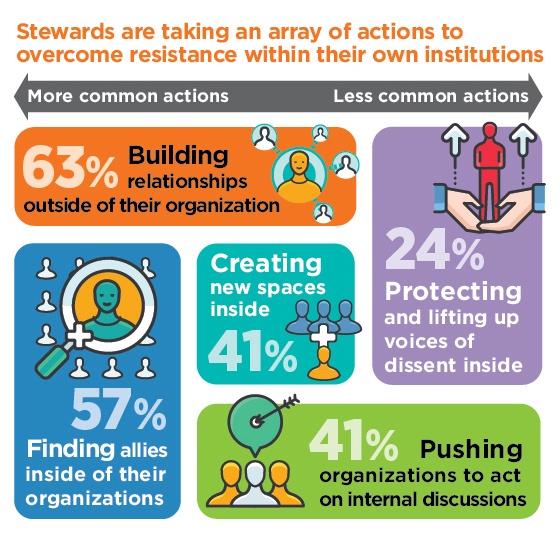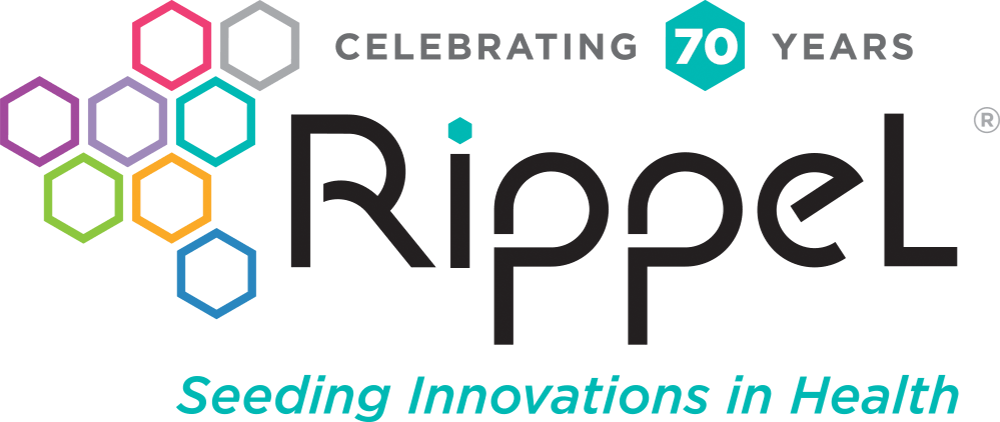Our institutions are in transition. From hospitals navigating new financial realities during the pandemic to schools re-working their curricula, the established ways are changing. Across the country, stewards are taking advantage of these transitionary times and encouraging our institutions to also advance well-being and equity. This was a major theme in our recent Tracking Poll for Stewards of Well-Being, a bi-monthly survey launched in April to find out how stewards are navigating system change efforts in the midst of national crises around Covid-19, racial injustice, economic recession, and ecological catastrophes.
We are fielding the poll every other month through the end of this year. In August, we heard from 63 leaders working locally and nationally across many areas of practice (health, education, environment, economic renewal, and beyond) and types of organizations (government, business, philanthropy, nonprofits, and more) to drive systems change for equitable well-being. Our findings from this most recent survey are presented below.
Stewards remain cautiously confident that there will be lasting systems change
Similar to respondents to our April and June surveys, the overwhelming majority of August respondents are extremely, somewhat, or slightly confident that there will be lasting systems change (95%). However, there was also an uptick at both ends of the spectrum: more respondents are either extremely confident (rising from 2% to 11%) or not at all confident (rising from 0% to 5%).
Lena Hatchett, from Proviso Partners for Health, was among those who responded that they are “extremely confident.” She attributes her optimism to the fact that structural racism is now at the forefront in the minds of the general public, and she views Covid-19; the impending elections; and failures in our health care, education, and economic systems as drivers of change. “The current system has to fail before people who benefit are willing to change,” she continues.
In August, stewards appeared to be less explicitly focused on developing a shared narrative for change around racial injustice (5%, compared to 24% in June). However, stewards say they are more focused on actions driven by those shared narratives, including:
- Addressing structural inequities (25%, compared to 11% in June)
- Shifting norms, practices, and incentives of established institutions (22%, similar to 20% in June); and
- Pursuing long-term solutions that address multiple problems at once (21%, similar to 20% in June)
Stewards are taking an array of actions to overcome resistance to systems change within their own institutions


